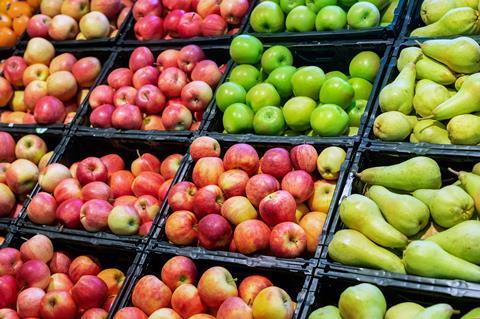Australian government agrees to implement all 11 recommendations from the final report into the Australian Food and Grocery Code of Conduct
Craig Emerson has released the final report in his review of the Food and Grocery Code of Conduct with 11 recommendations including to make the currently voluntary code mandatory.

In response to the review, the Australian federal government has accepted all 11 recommendations and announced it will prioritise new legislation that will support the changes.
“This is about getting a fair go for families and a fair go for farmers,” said agriculture minister Murray Watt in a statement.
“Our efforts will help to ensure our supermarkets are as competitive as they can be so Australians get the best prices possible.”
The final report maintains the recommendations made in the interim report including the suggested maximum penalties for the most serious breaches to be the highest of A$10m, three times the benefit gained from the breach, or where the benefit cannot be determined, 10 per cent of turnover in the 12 months preceding the breach.
In addition, Emerson has also recommended maximum penalties of more than A$1m for all other breaches. He also recommended the ACCC be allowed to issue infringement notices with penalty amounts of up to A$187,800.
“The penalties I am recommending for breaches of the Food and Grocery Code are the heaviest of any industry code of conduct,” Emerson said.
The 2015 code was originally created to address harmful practices in the grocery industry stemming from an imbalance of bargaining power between supermarkets and their suppliers.
In January 2024, the Prime Minister, the treasurer, the minister for agriculture, fisheries and forestry, and the assistant minister for competition, charities and treasury appointed Emerson to lead the 2023/24 review of the Code.
The review held 65 meetings with stakeholders, conducted two producer roundtables and two processor roundtables with agriculture minister Murray Watt. It received 88 formal submissions in response to the consultation paper and interim report.
“The review found that the current voluntary Code is failing to address the imbalance of bargaining power between supermarkets and their suppliers, including farmers,” said Watt.
“Suppliers fear retribution from supermarkets if they raise concerns or exercise their rights under the Code.”
In order to implement the recommendations in full, changes to regulations and the Competition and Consumer Act 2010, are required, which the government has said it will prioritise.
Ausveg, the peak industry body for Australian vegetable, potato and onion producers, has welcomed the Australian government’s commitment to adopt the recommendations.
“Retailer relations with suppliers are complex, and we congratulate Dr Emerson on listening to concerns raised by industry, and by extension the government for committing to implement the recommendations,” said Ausveg chief executive Michael Coote.
“If implemented effectively, many of these recommendations have the potential to improve business relationships between growers and retailers and may help ensure growers receive fair and sustainable prices for their produce.”
However, Coote also noted that there is still some way to go before the recommendations are operational.
“While we await further details on measures and timings, we also emphasise the importance of government and regulators continuing to consult with industry, to ensure the changes result in material differences to the bottom lines of struggling vegetable farming businesses,” he said.
The next statutory review of the Food and Grocery Code will commence within five years of the mandatory Code taking effect.



